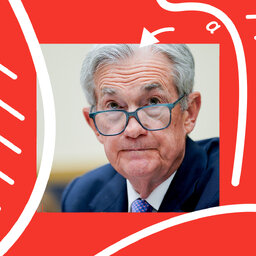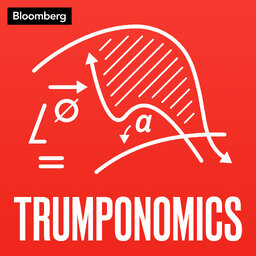Creating Catalonia From Scratch
How do you create a new country? For Catalonians looking for independence from Spain, secession can give you an emotional high, but what about the bills? Every nation needs a sense of identity and community, of shared heritage and geography. That won't feed people. There's revenue to be collected and bills to be paid, not to mention possibly issuing currency and creating a central bank. And don't forget about picking up the trash. Bloomberg's Maria Tadeo and Maxime Sbaihi explain the building blocks of statehood to Scott and Dan.
In 1 playlist(s)
Trumponomics
Tariffs, crypto, deregulation, tax cuts, protectionism, are just some of the things back on the tabl…Social links
Follow podcast
Recent clips

Nigel Farage at Davos: 'The Consensus Era Is Over'
26:59

Live from Davos: Greenland Shock Tests Europe’s Spine—and Strategy—at Davos
38:13

How the Powell Probe Could Blow Up Trump’s Fed Plans
26:25
 Trumponomics
Trumponomics